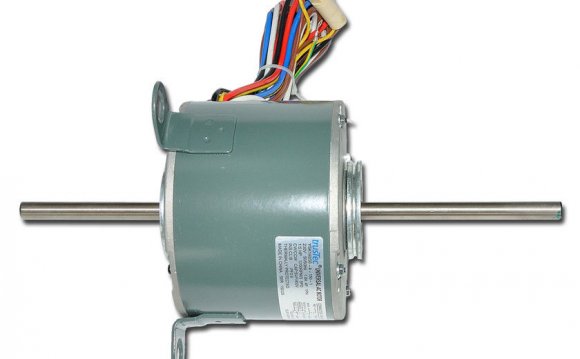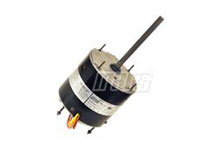
 It is a big deal when the air conditioning goes out on a hot summer day, but there is no need to wait for help to come to you. Many air conditioning malfunctions are not difficult to identify and repair. The following test procedure will help you identify if the problem with your outdoor unit is the fan motor, the capacitor, or the contactor.
It is a big deal when the air conditioning goes out on a hot summer day, but there is no need to wait for help to come to you. Many air conditioning malfunctions are not difficult to identify and repair. The following test procedure will help you identify if the problem with your outdoor unit is the fan motor, the capacitor, or the contactor.
Troubleshooting the “outdoor air conditioner unit not running” starts with some easy commonsense steps:
- Make certain the thermostat is set to cool and the indoor unit is running (blowing air out the room air vents).
- Listen to the outdoor unit for the sound of the compressor running.
- If you hear the compressor running go to “section A” below. Note, compressors can run quietly.
- If you cannot hear the compressor running go to “section B” below.
Section A; you can hear the a/c compressor running and the fan motor is not turning.
Because the compressor is running you know there is 220 volts power to the outdoor unit and you know the contactor is doing its job of delivering that 220 volts to the compressor and to the motor. The malfunction will be a bad capacitor and/or a bad motor. Capacitors can be tested with multi-meters that have the ability to read microfarads or you can take your capacitor (and your motor) to your nearest store for a free bench test. If the capacitor tests good then your motor is bad.
Caution – Capacitors can store an electric charge (like a battery). The shock hazard is non-lethal, but it is no fun. Check the 220 volt power is off and discharge the capacitor by shorting between capacitor terminals (with insulated screwdriver) before removing the wires from the terminals.
 Interesting facts
Interesting facts
- A capacitor connected to both the compressor and the motor can fail on just the motor side.
- Bad a/c fan motors can sometimes be started by “spinning” the fan blade with a stick – it is still a bad motor.
Section B; you cannot hear the a/c compressor running and the fan motor is not turning. Your next troubleshooting step will be checking the 220 volt power because it is highly unlikely both the compressor and the fan motor would fail at the same time. Failure of the contactor (see picture above) most often produces this symptom. You can prove the contactor is the problem by using a multi-meter or you can take your contactor to your nearest store for a free bench test.
Testing the contactor on air conditioner outdoor unit
- Using a multi-meter, verify there is 220 volts going into the contactor, but zero volts coming out of the contactor (to the motor and compressor). If you you have 220 volts coming out (contactor is good) then check the capacitor or bring it in to U-FIX-IT for a free bench check.
- Check for 24 volts across the coil terminals. If no 24 volts call for assistance.
- Contactor is bad if multi-meter reads 220 volts going in, zero volts coming out, and 24 volts across the coil terminals.
Caution: use care when measuring live voltages not to touch bare connections or short them to the cabinet or to other terminals with the meter probes.









